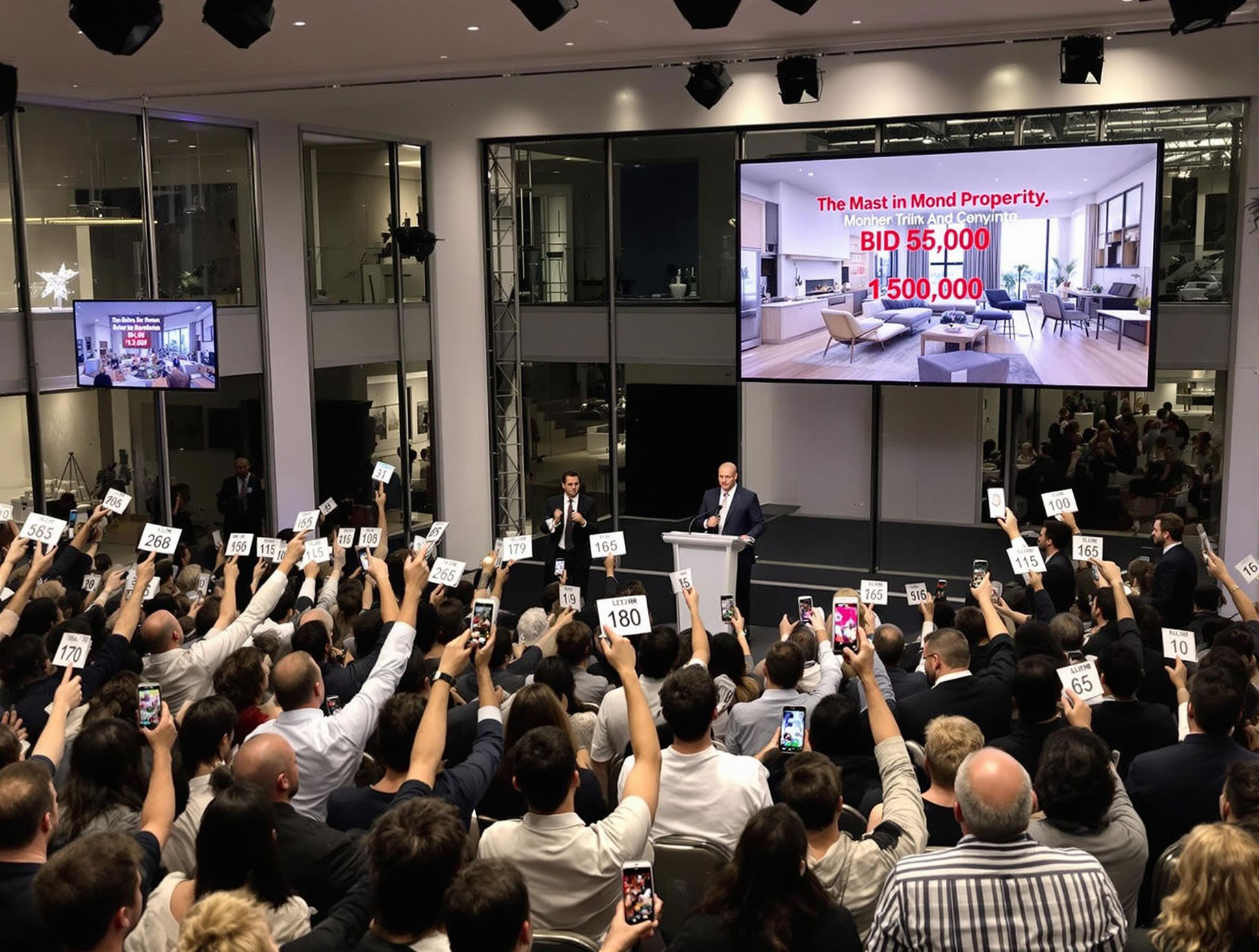
Conventional home sales follow a predictable script—listings, showings, negotiations. But in certain markets, auctioneers’ gavels secure better outcomes than For Sale signs. Data reveals specific scenarios where competitive bidding drives prices beyond traditional sale figures, with faster closings and stronger buyer commitment. For unique properties or time-sensitive situations, online property auctions often outperform standard listings by converting urgency into premium offers.
Market Conditions That Favor the Auction Block
Not all environments suit auction sales equally. The method thrives when inventory scarcity meets high demand—typically in seller’s markets with low months of supply. Buyers facing limited options compete aggressively, while cooling markets risk lukewarm participation. Seasonal timing matters too; spring auctions capitalize on moving season urgency, whereas winter sales may attract fewer bidders.
Property Types That Command Premium Bids
Certain real estate categories consistently achieve auction premiums. Architecturally distinct homes often sell better under the hammer because comparables fail to capture their true value. Estate properties needing swift resolution among heirs benefit from fixed timelines. Renovation projects attract investor competition that drives prices up, while luxury listings leverage exclusivity to fuel bidding wars. Traditional sales frequently undervalue these assets through static pricing models.
The Speed Factor in Modern Transactions
Time-pressed sellers gain most from auction efficiencies. Probate cases, relocations, or corporate liquidations benefit from fixed 30-45 day timelines versus unpredictable traditional sales. Unlike conventional deals where financing contingencies often derail transactions, successful auction bidders submit non-refundable deposits immediately, with settlements frequently occurring within weeks rather than months.
Psychological Dynamics of Public Bidding
Auctions manipulate buyer psychology differently than private negotiations. The public nature triggers competitive instincts and fear of missing out, while incremental bidding normalizes higher prices. Transparent competition eliminates lowball offers—each participant sees rivals validating the asset’s worth in real time, creating a self-reinforcing cycle of increasing valuations.
Comparing Financial Structures
While auctions carry marketing fees and buyer premiums typically ranging from 5-10%, they often offset traditional costs in meaningful ways. Sellers avoid prolonged staging expenses and eliminate the carrying costs from extended listings. The auction model also reduces the likelihood of price reductions and can lower overall broker commissions in certain structures. When properties sell above reserve prices, net proceeds frequently exceed traditional sale projections after accounting for all variables.
Hybrid Sales Models Emerging
Innovative approaches now blend traditional and auction methods to mitigate risk. Some listings start with private showings before transitioning to timed bidding, allowing sellers to test premium pricing potential. Certain platforms permit conventional offers during marketing periods, only converting to auctions if reserve thresholds aren’t met through traditional channels.
Geographic Variations in Effectiveness
Cultural acceptance of property auctions varies significantly by region. Southern U.S. markets demonstrate strong participation for farmland and estate auctions, while coastal cities show better results for luxury properties. Legal differences also impact viability—some states require judicial oversight for certain transactions, adding complexity to the auction process.
Digital Platforms Reshaping the Industry
Online bidding platforms now dominate the auction space, expanding potential buyer pools globally. Virtual tours and automated bid tracking maintain competitive tension while reducing logistical challenges. However, live events still outperform digital formats for high-value properties where the physical atmosphere and social dynamics influence spending behavior.
When Traditional Methods Remain Superior
Auctions prove less effective in several specific circumstances. Markets where financing prerequisites limit the buyer pool often struggle with auction formats. Emotional sellers who resist market-driven pricing may reject auction outcomes. Properties with complex title issues requiring lengthy due diligence periods typically fare better through conventional sales.
Making the Strategic Choice
Sophisticated sellers now approach sales methodology as a variable in their ROI calculations rather than defaulting to traditional processes. By carefully matching property characteristics, timelines, and local market dynamics to the right sales approach, auctions transform from niche last resorts into precision profit tools. The evidence clearly shows that in the right conditions, competitive bidding doesn’t just sell properties—it maximizes their true market value.